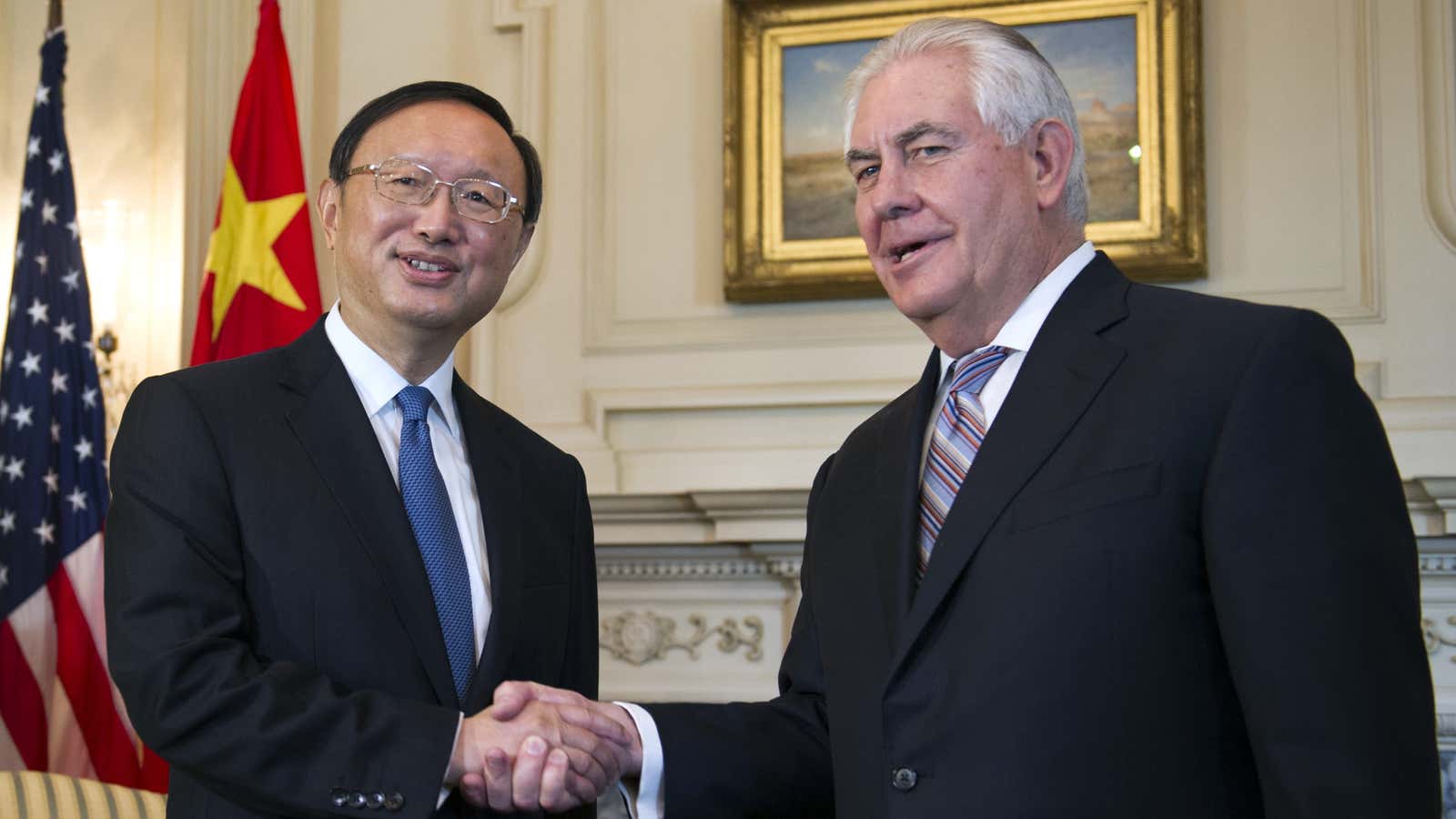For another sign that the US and China are moving in separate directions on the global stage, look no further than their plans for the foreign service.
A Bloomberg report this week said that China’s foreign ministry—which has for years been among the weakest of China’s government entities—will be playing a more important role in representing the country’s interests overseas. Beijing, according to the report, has decided to establish a more consolidated diplomatic structure after president Xi Jinping declared in October that China has entered a “new era,” and is moving closer to the center of the world. The overhaul means, for example, that the foreign ministry will now be given veto power over financial and personnel decisions at embassies.
Beijing’s move is creating a serious challenge to the US state department, which has seen departures of several top career diplomats, while key jobs remain unfilled. Donald Trump and his secretary of state Rex Tillerson also reportedly have a difficult working relationship, and have disagreed on major issues including North Korea, the Iran nuclear deal, and the Paris climate accord. In December, Trump dismissed reports that he was looking to oust Tillerson (but used an awkward image of the two to make his point).
China’s top diplomat Yang Jiechi, meanwhile, was elevated to the 25-member Politburo, China’s top decision-making body, during a Communist Party conclave in October—the first such promotion in two decades.
China’s diplomatic spending is also steadily rising, while America’s declines—although US spending on diplomacy still far outstrips China’s. Last year, Beijing budgeted 54 billion yuan ($7.8 billion) for diplomatic affairs, up 60% from five years ago, according to government figures. By comparison, Trump’s “America First” budget for 2018, released in March, aimed to cut spending for the foreign service by about 30%.
However, not all within the Republican party agree with Trump’s approach to diplomacy. “America must remain the preeminent power in the world… Now is not the time for retreat; now is the time to double down on diplomacy and development,” said senator Lindsey Graham, chairman of a Senate committee on international programs in September. The committee later approved $51 billion for the State Department, far greater than the budget Trump had requested.
